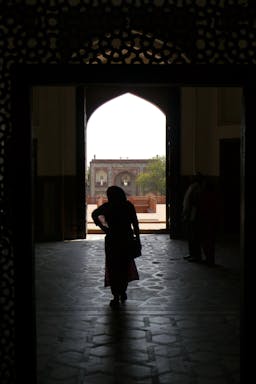Experts debate Orphanages, Rehabilitation for Orphanages in Kashmir
Jan 21, 2015
Story
My First Piece at GPI
Aliya Bashir
For orphans who have lost one or both parents in the conflict that has plagued Kashmir for decades, orphanages have long offered lifesaving food, shelter and education. But experts in several fields say orphanages are not a long-term solution and that orphans will be back on the streets once they are too old to stay.
SRINAGAR, KASHMIR, INDIA – Kulsum Dilawar, 16, stands up nervously before sitting back down on the edge of her bed, her eyes gazing down at the floor. Wearing a simple outfit and a printed scarf covering her hair, she flips through the pages of her notebook.
“Can we talk outside?” she mutters.
"Our main goal is to educate them. We will guide them until they will become responsible, mature adults."
-Zahoor Ahmad Tak, patron, Jammu and Kashmir Yateem Trust
There are many girls sitting in the spacious room lined with twin-sized beds and big, iron cupboards at Gulshan-e-Banat Orphanage in Budgam district. The orphanage, located about 10 kilometers from Srinagar, the state's summer capital, is home to 110 girls.
Dilawar walks slowly into the next room and gives a sheepish grin.
“Thank you,” she says.
She tries to muster more, but nothing comes out. Her lips move as if in silent prayer.
Away from the other girls, she talks voluntarily. Still, her voice is choked with emotion as she recounts witnessing her father’s murder.
“I have nothing to lose,” she says. “But whenever somebody inquires about Baba, I feel the same helplessness and pain that I felt when I became an orphan.”
Dilawar is from a village in Baramulla, another district in northern Kashmir.
Her father, Dilawar Ahmed Rather, was a famous singer in the Kashmir Valley who had his own band. But he was also a suspected militant in the village. His family and other villagers assured his innocence, but the army would still routinely drag him to the police station and then release him on bail.
On a cold, rainy morning during the winter of 1997, Dilawar’s father, who was 30 at the time, and younger brother Adil were taking a nap upstairs in their home. Dilawar was sitting in the same bedroom.
“They were sleeping, and surprisingly, two men in civil clothes wearing pheran came inside the room and asked, ‘Where your father is?’” she says. A pheran is a traditional Kashmiri long gown. “I told them he is here sleeping.”
She breaks into tears.
“They took pistol out, and without saying anything, fired bullets and killed my father,” she says. “He died while sleeping.”
Her mother was busy with household chores and didn’t know that anybody had entered the house. As Dilawar screamed, the other family members ran upstairs and villagers gathered around the property. Meanwhile, the men escaped. How they managed to enter the house undetected remains a mystery.
“I still remember their faces,” Dilawar says. “I can never forget them. They fired the bullet without any voice. It was just like a creak of a stone. Whenever I close my eyes, the images of the killers come before me. The horrific memories will haunt me forever.”
Her mother now had four daughters and two sons to raise on her own. Dilawar, the youngest daughter, says that her older sisters used to help to look after the family. But now they are all married.
Dilawar’s mother, a housewife, had no livelihood to support her and her brothers, so she sent them to the orphanage. There, the children could have food and shelter and also obtain an education.
Dilawar and her two brothers came to stay at the orphanage in 2003. Dilawar lives in the orphanage for girls, and her brothers live in the one for boys. She is in grade 10 at Banat Insititute of Education, the school for girls next door to the orphanage. Her brothers are in grades 3 and 10 in the school for boys.
When Dilawar first came to the hostel, she was disturbed, sad and vengeful, staff members and peers say. But over the years, she has grown up into a mature girl, known at the orphanage for her brave heart and tomboyish character.
Read more:
http://globalpressinstitute.org/global-news/asia/india/experts-debate-or...




